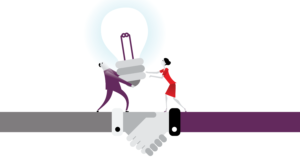
A friend of mine recently received a significant promotion. While he is excited about his promotion, he is searching for his replacement and, for now, is doing both jobs. When I asked him how it was going, he responded, “I’m just trying to get it all done without dropping any balls.”
This conversation reminded me of one I had with one of my clients. She was lamenting the challenges one of her executives has with burnout. In this case, the CEO said, “I wish he would learn to drop some balls; his effort to get everything done is causing his burnout!”
The’ to-do list’ can seem endless for those who want to dot every I and cross every T (I admit I am one of them). I heard this wise CEO say, ” Go ahead, drop some balls. Just choose the ones you are going to drop.”
What if, instead of starting each day with a list of what we will do, we begin by removing the things we aren’t going to do? Here are some examples to get you started:
- What if you reviewed your email once or twice per day and let everyone know that this is your plan?
- What if you coded your email so critical emails moved to a priority list, and you responded to these first and removed yourself from cc lists?
- What if, for everything that comes your way, you paused and asked yourself, does this email, call, text, or inquiry require a response? And if it does, is this something only I can do? Or can I delegate it?
- What if you paused before saying “yes”?







 The initial results of my Pivot are excellent. I feel I have much greater clarity regarding the next 3-5 years..
The initial results of my Pivot are excellent. I feel I have much greater clarity regarding the next 3-5 years.. 